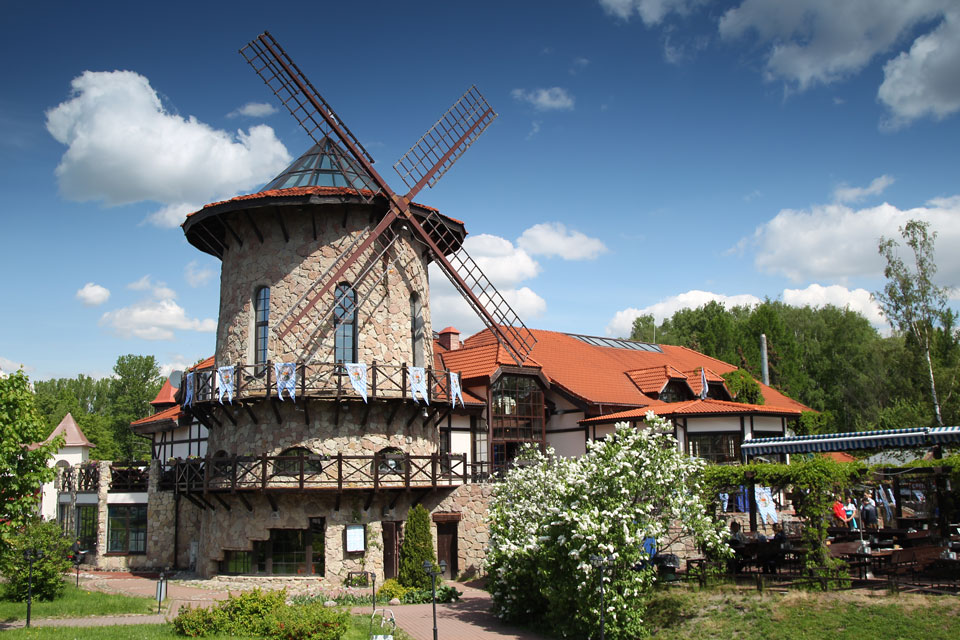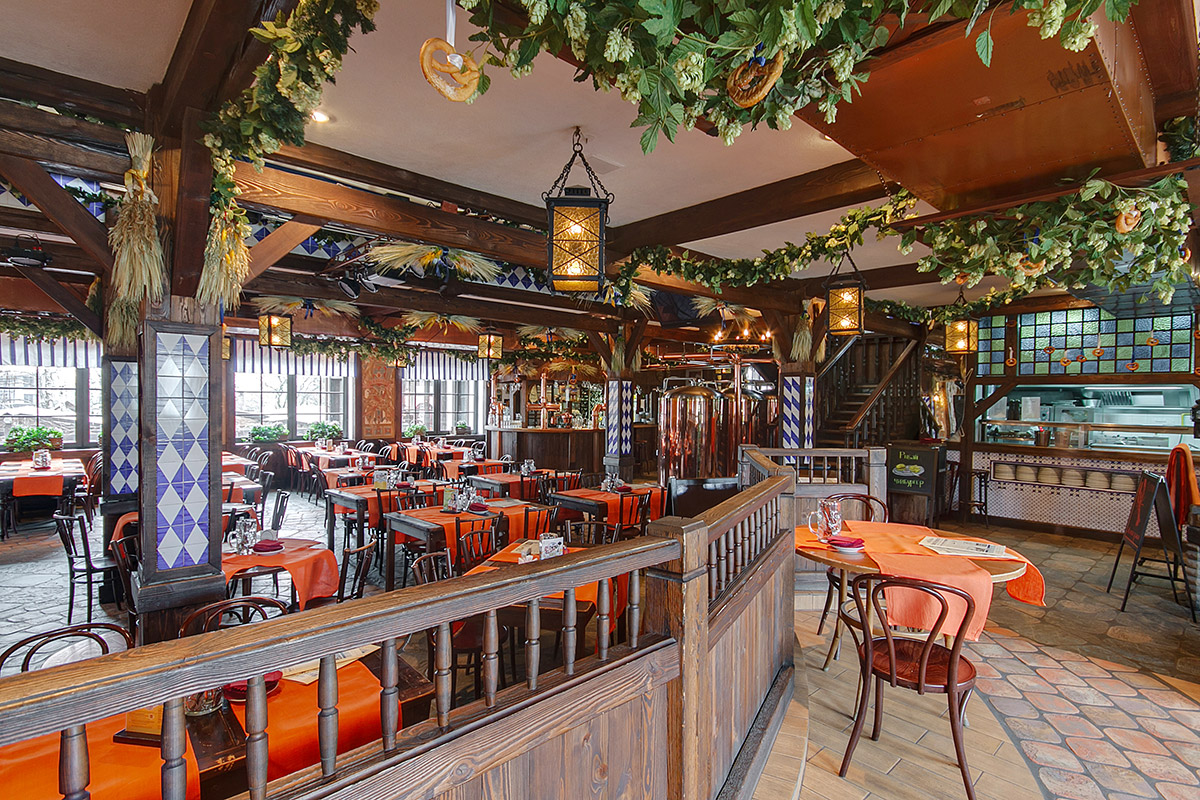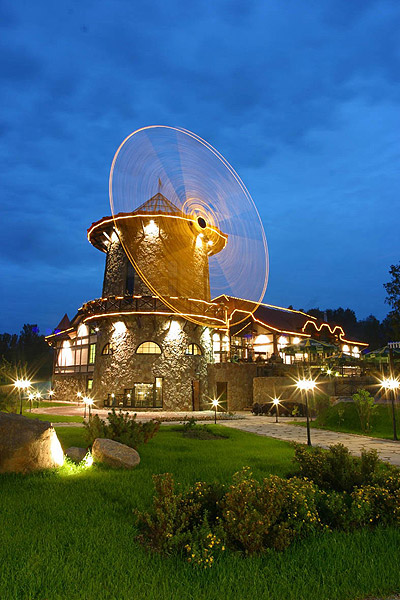 Back
Back
Karl&Friedrich
«Karl and Friedrich» is the only restaurant in St. Petersburg with a true Biergarten - «a beer garden» with seating for 1,500 people. It has its own brewery, which brews 4 beer brands and some seasonal beers to the traditional Bavarian recipes according to the German Beer Purity Law (Reinheitsgebot) 1516.
In 1724, Peter the Great visited the German church in St. Petersburg and had a long conversation with the local pastor, Reichmut. Upon learning that his sons Karl and Friedrich have graduated from a famous brewing school in Munich and would like to start a proper German brewery in the new Russian capital, the emperor gave the pastor money to bring his sons to St. Petersburg and signed a law deed to a piece of land on Krestovskiy Island. Upon arrival in St. Petersburg, the young German brewers were welcomed at the Winter Palace, and Peter personally laid the cornerstone of the new enterprise, which consisted of a malt mill and a brewery. In less than 3 months the emperor died. And the German entrepreneurs began to experience difficulties. Soon they were forced to leave their Russian home.
The first owner of Krestovskiy Island was Marshal Burkhardt Minich. The builder of the Peter and Paul Fortress and Ladoga channels remembered the will of the first Russian emperor, although the cornerstone have already been lost by that time, and the Reichmut family lived far from St. Petersburg.
Both before and after his exile to Siberia by the new empress Elizaveta Petrovna, Minich attempted to resume construction of the brewery, a restaurant and other entertainment for the large number of Europeans living in the Russian capital.
Years went by and the story of Karl and Friedrich and their brewery became a legend in St. Petersburg as well as in distant Munich. As a result, taverns appeared on Krestovskiy Island. According to the memories of contemporaries they served a «good, strong and hardy beer». Their owners were people from Germany like August and Amadeus Baum, Willhelm Krause and, from 1873, the Tatar entrepreneur Khabibula Khasanovich Yalyshev.
At the end of 19th century the first-class Krestovskiy Garden restaurant appeared on the site where the taverns had once stood. Thanks to the legends of Karl and Friedrich that had been passed from mouth to mouth, the most popular drink at Krestovskiy Garden, which stood on the site where Peter had planed the brewery, was beer.
The beer lovers such as Igor Severyanin, Alexander Blok and Alexander Kuprin, inventor of radio Popov, artist Konstantin Makovsky, Admiral Makarov, and the traveler Miklouho-Maclay visited the restaurant several times a week. Krestovskiy Garden still attracted beer connoisseurs –both local and guests, Germans, and the British. Poet Nikolai Shtolin wrote the following lines while in exile in Paris:
«Among the fascinating naiads
I chose a girlfriend. How good was Krestovskiy Garden
And a mug of Martovskoye. Here a Russian feast, a German feast,
Here, life is a miracle. While still in Russia – peace,
And side-by-side they drink – Teutons with their ‘bier’,
And Russians with ‘pivo’.»
Nicholay Shtolin had a good reason for blues while abroad. In Soviet times Krestovskiy Garden was burned down as an institution foreign to the victorious proletariat. On the remaining waste lot, a training area for aspiring drivers has been created.
Meanwhile, Ludwig Reichmut, a businessman from Karlsruhe and a descendant of the original brewing pioneer on Krestovskiy Island, began studying his family’s history and in 1999 came to St. Petersburg. He got in touch with the owners of the nearby Russian Fishing restaurant and offered to share the family’s secrets of Reichmut beer if the brewery would be revived in the same place. When creating the foundation of the new building, the original cornerstone dating from the year 1725 was discovered bearing the inscription «Hie domini MDCCXXIV iussu imperatoris Russiae Petri I prima bracina Petropolitana est.» That is, «Here in 1724, by the order of Peter the Great, the first Russian brewery was founded.»








